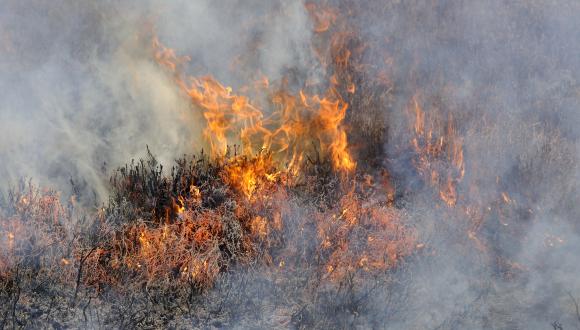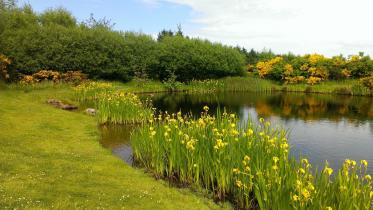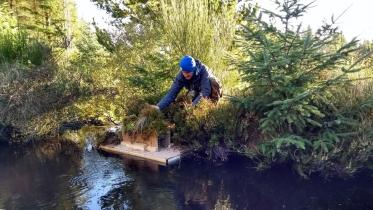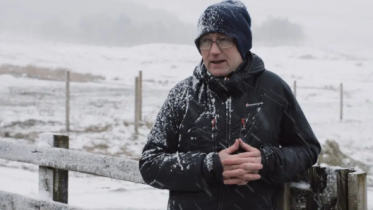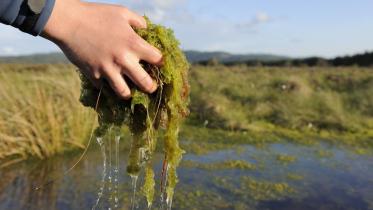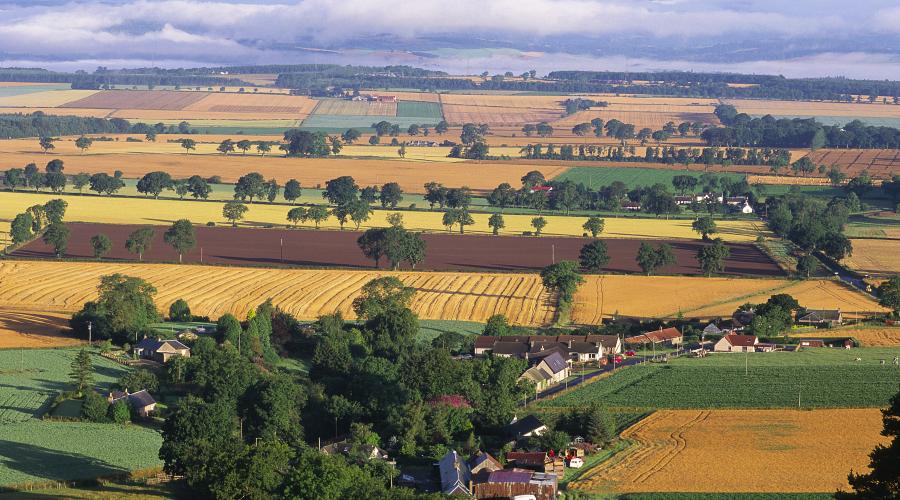
Impacts on people and our economy
Scotland’s nature and landscapes are vital to many sectors of our economy, which may be affected by climate change impacts.
Food supply security
Warmer temperatures might mean that Scotland could grow more food. But the threat of pests, diseases and invasive non-native species could result in damage to some food production. Agricultural land managers must find ways to manage the threats and opportunities linked to farming and climate change.
Extreme climatic events around the world will affect food supplies and costs in Scotland as elsewhere.
Water quality and availability
Competition for water may increase to meet domestic, agricultural and industrial demands, as our climate warms and rainfall patterns change.
Summer droughts may occur more often, causing water quality and supply issues. Changes in wetland habitats may reduce their natural capacity to filter pollutants.
Increased risk of flooding
Climate change is likely to alter rainfall patterns and bring more heavy downpours, causing more flooding in the future. This could cause serious problems for people, businesses, communities and our heritage.
Some changes in rivers and wetland habitats caused by climate change (and our response to such changes) may reduce their natural ability to control flooding.
Rising sea levels
Coastal habitats can help to protect us from rising sea levels, storm surges and associated flooding events. But vital coastal habitats may be lost when rising sea levels combine with coastal development pressures.
Marine ecosystems
Climate change and other pressures – fishing especially – already affect Scotland’s marine life. Changes will continue, as rising ocean temperatures and ocean acidification are likely to impact on species and their distribution. Our commercial fisheries and marine aquaculture industry must find ways to respond to the threats and opportunities that arise.
Human health and well-being
Warmer temperatures may enable a healthier and more active outdoors lifestyle and reduce winter mortality. But climate change may also affect patterns of disease and have other impacts on our health.
Cultural heritage and identity
As well as altering our unique Scottish landscape, coastal erosion, flooding and wetter, warmer conditions threaten our historic environment. The pace of climate change challenges everyone involved in caring for and protecting Scotland’s built and natural heritage.
Energy supply security and efficiency
Climate change may affect our capacity to generate renewable energy. For example, hydroelectric power schemes will be affected by varying water availability.
Extreme weather events can also cause damage to power distribution systems.
Recreation
The changing climate will affect how people use and enjoy the outdoors in both urban and rural areas. Investment in paths and places for recreation, and in visitor management should take account of climate change impacts.
A 2011 NatureScot study looked at how climate change might affect Scotland’s paths. It found that planned preventative maintenance is vital to ensure that our paths can withstand the predicted chronic impacts of climate change.
Find out more
Podcast: How climate change is affecting our weird and wonderful weather

